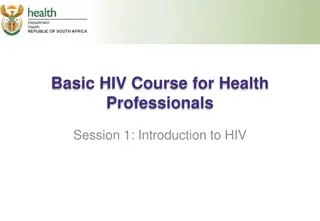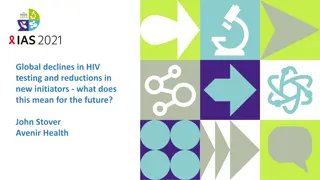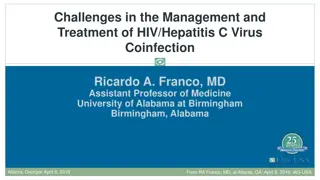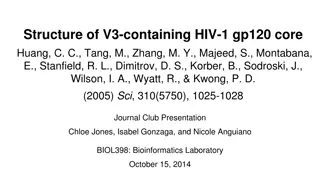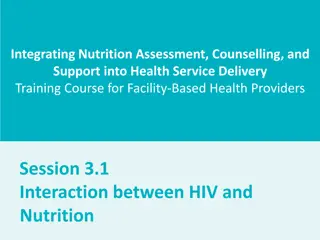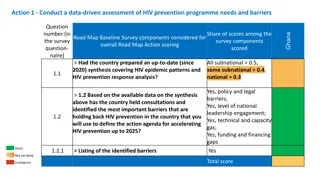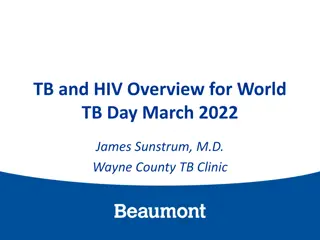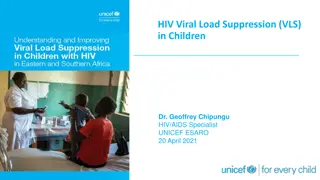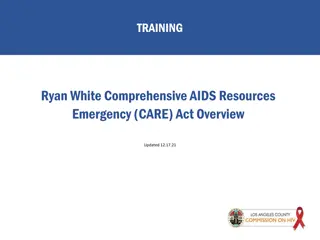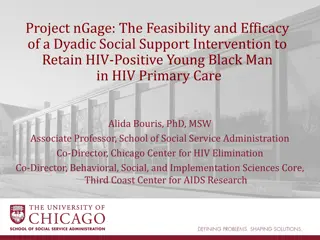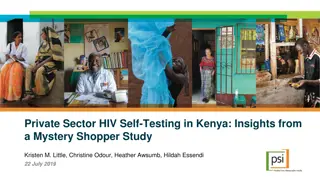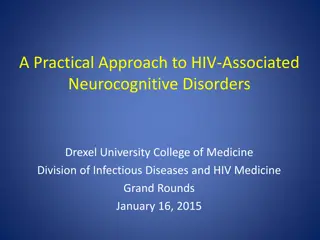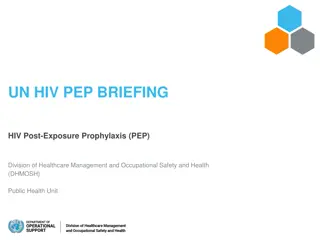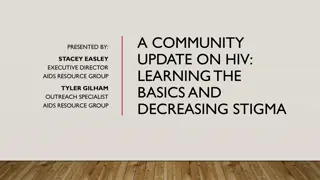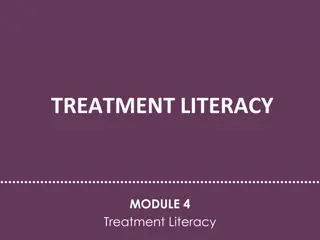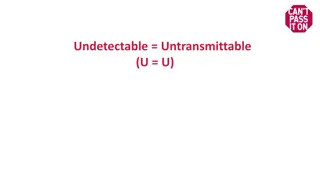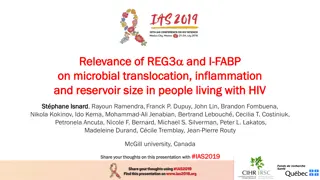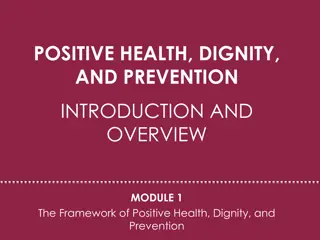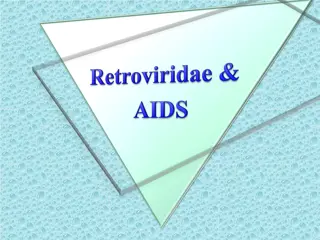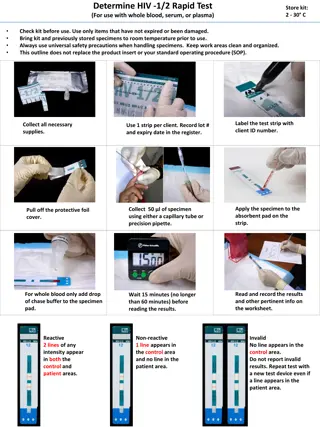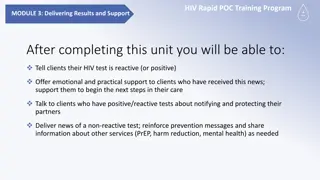Understanding HIV Policies and Laws for Health Professionals
Explore the distinctions between laws and policies, learn about the Constitution and Bill of Rights in relation to HIV, and understand legal frameworks impacting individuals living with HIV. Discover how discrimination is prohibited and patients' rights are protected in healthcare settings.
Download Presentation

Please find below an Image/Link to download the presentation.
The content on the website is provided AS IS for your information and personal use only. It may not be sold, licensed, or shared on other websites without obtaining consent from the author. Download presentation by click this link. If you encounter any issues during the download, it is possible that the publisher has removed the file from their server.
E N D
Presentation Transcript
Basic HIV Course for Health Professionals Session 14: HIV Policies and the Law
Learning Objectives By the end of this session participants should be able to: Differentiate between policy and law Describe the relevance of the Constitution and Bill of Rights to a person living with HIV Discuss confidentiality; disclosure to sexual partner and the legal principles in relation to ethics and HIV
What is the Difference between a Law and a Policy? Laws are rules that must be followed by everyone in the country, unless otherwise specified for certain people or bodies Policies are guidelines followed by everyone Not as enforceable as laws, but largely based on laws, and can become law in time become law once courts use them as a basis for decisions
The Constitution and the Bill of Rights The Constitution is the highest law in the land and has a list of human rights that it protects in the Bill of Rights Everyone must follow it; no laws can go against it
Legal Framework (1) International human rights instruments Constitution: Right to health care Right to equality Right to human dignity National Health Act HPCSA Guidelines
Legal Framework (2) Operational Plan for Comprehensive HIV/ AIDS Care, Management and Treatment for South Africa (government policy) Patient s Rights Charter (state policy)
Discrimination People with HIV have the right to live their lives with respect, dignity and freedom from discrimination and blame No employer can require that a job applicant have an HIV test before they are employed. An employee cannot be fired, retrenched or refused a job simply because they are HIV positive
Patients Rights Charter Patients have the right to: A choice of health care facilities Know the name of health care workers Confidentiality A second opinion On-going medical care Make complaints A healthy and safe environment Take part in decisions about health care Basic health care at state health facilities Information about medical aids
Confidentiality General legal principle: all medical information is private and confidential Health care workers cannot disclose confidential information without patient s consent Confidentiality is important to allow people living with HIV to access medical treatment Doctors cannot breach doctor patient confidentiality because they think there is a risk of being infected with HIV at work
Disclosure to Sexual Partner Doctor can disclose to identifiable sexual partner who is at risk of contracting HIV, if patient refuses to disclose Need to first provide in-depth counselling Give patient opportunity to disclose Warn of disclosure by health care worker Doctor has discretion, not duty to disclose
HIV Testing (1) General legal principle: a patient must give informed consent for all medical procedures Informed: patient must understand risks and benefits of procedure Consent: patient must agree to treatment of own free will
HIV Testing (2) Specific guidelines on HIV testing: HPCSA guidelines SAMA guidelines DOH National Policy on HIV testing
HIV Testing Exceptions Next of kin or medical superintendent can consent in cases of: Medical emergency Mental incapacity Blood donations Child under 12: parent / guardian must consent Anonymous unlinked testing for statistics Injury to health care worker: existing sample can be tested
Up-scaling HIV Testing Many people are diagnosed with HIV only when very ill: barrier to effective prevention and treatment Need to increase numbers of people testing for HIV while still healthy and start treatment same day Various proposals: Compulsory testing Opt-out testing Provider initiated testing Same day treatment initiation Problem: how do we increase access to testing without losing human rights gains?
Right to Medical Treatment No one may be refused emergency treatment Right to medical treatment not absolute State must put laws in place so that eventually all will have access to health care State must decide how to allocate scarce resources People living with HIV have same right as other patients to medical treatment including: treatment for opportunistic infections ARV treatment palliative care
Organizations Serving as Additional Resources on Legal and Ethical Issues Refer to pages 190 192 of your participant manual to see a chart with information on all of these organizations
Any Questions? Thank you!


